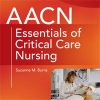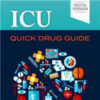Relationship Between Skeletal Muscle Area and Density and Clinical Outcome in Adults Receiving VV-ECMO
journals.lww.comLow skeletal muscle index at the commencement of venovenous extracorporeal membrane oxygenation (VV-ECMO) was associated with a longer duration of venovenous extracorporeal membrane oxygenation, whereas preserved skeletal muscle density was associated with improved survival.
Skeletal muscle index and density was determined using Slice-O-Matic V5.0 (TomoVision, Montreal, QC, Canada).
Low skeletal muscle index and density were defined using published criteria. Regression models were used to assess for associations between muscle index and density and clinical outcome.
Two-hundred fifteen patients, median (interquartile range) age 46 years (35.0–57.0 yr) were included.
Forty-five patients (21.1%) had low skeletal muscle index, and 48 (22.3%) had low skeletal muscle density on commencement of venovenous extracorporeal membrane oxygenation.
Low skeletal muscle index was more prevalent in males and was associated with a longer duration of venovenous extracorporeal membrane oxygenation.

















